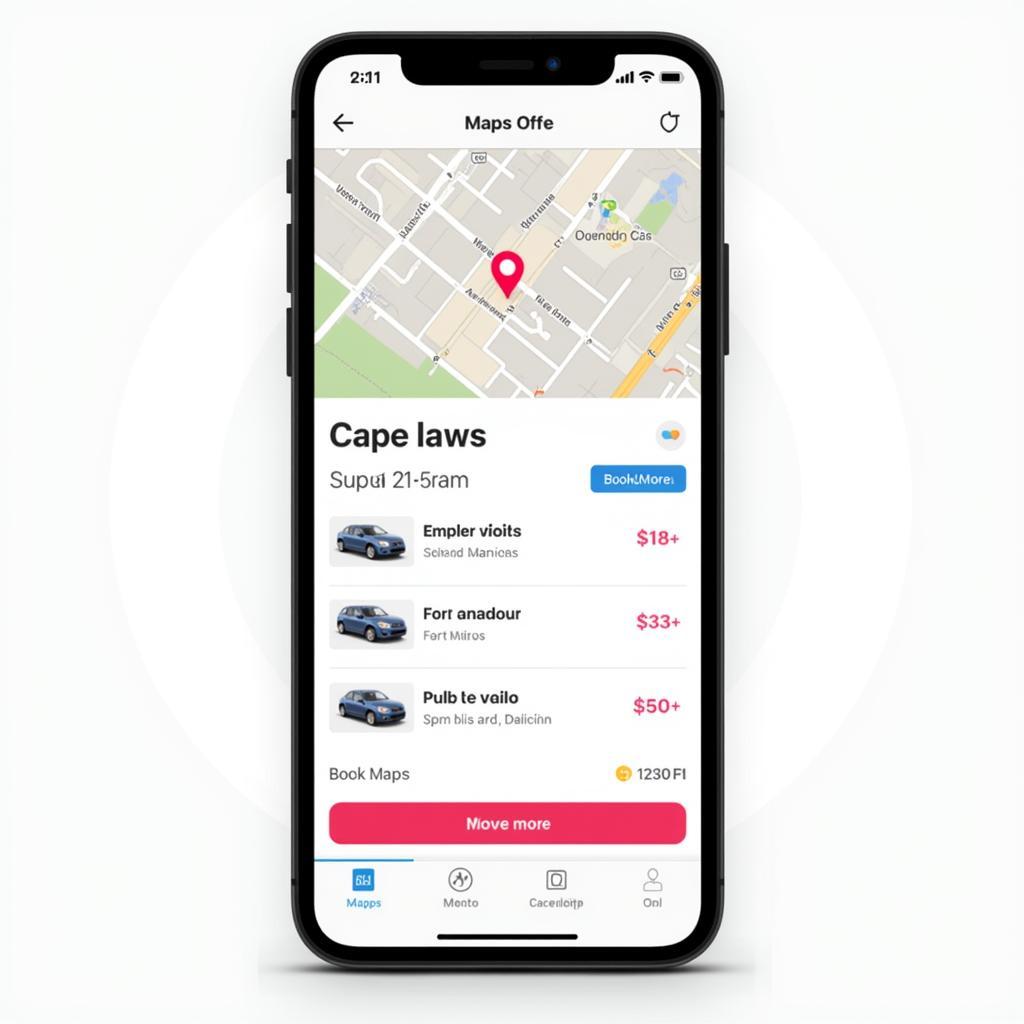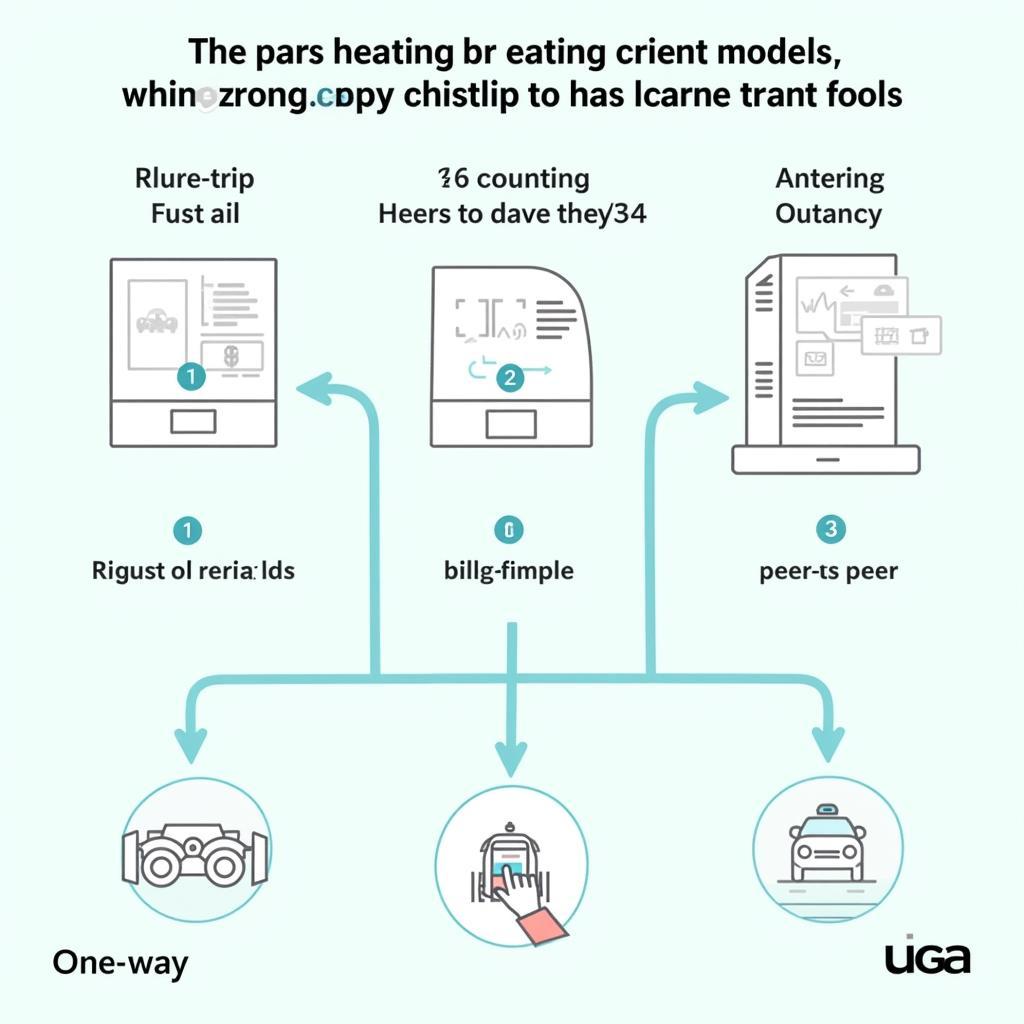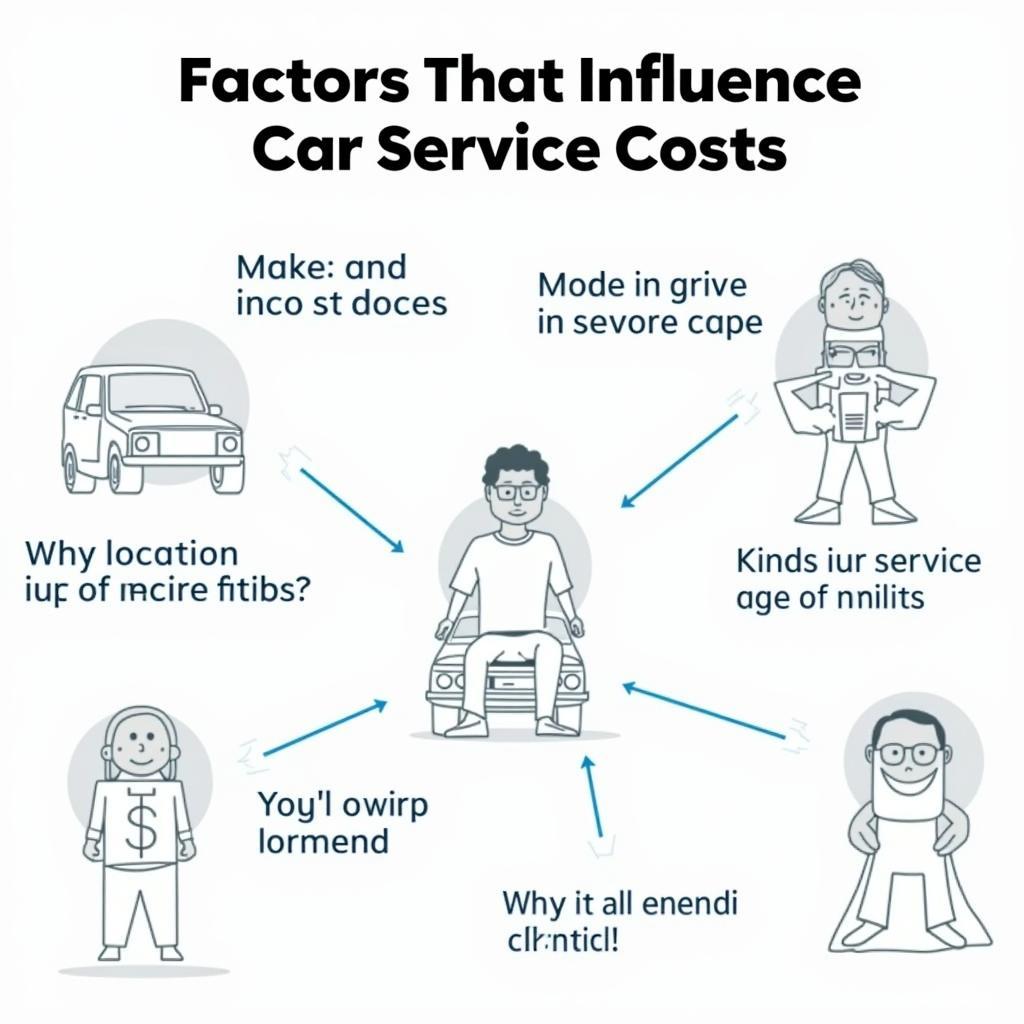What is Car Sharing Service?
Car sharing is an innovative transportation model that’s reshaping the way we think about car ownership and usage. It provides a flexible and cost-effective alternative to owning a vehicle, especially in urban environments or for those who only need a car occasionally. Instead of purchasing, insuring, and maintaining your own car, car sharing allows you to access a vehicle on-demand, paying only for the time and distance you use it.
Understanding the Mechanics of Car Sharing
Car sharing operates on a simple premise: a company maintains a fleet of vehicles strategically located throughout a city or region. These vehicles are available for members to rent on an hourly or daily basis. The process is typically managed through a website or mobile app, making it incredibly convenient for users.
 Car sharing app interface
Car sharing app interface
Here’s a step-by-step breakdown of how car sharing typically works:
- Registration: You sign up with a car sharing provider, providing your driver’s license and payment information.
- Reservation: Using the app or website, you locate a car near you and reserve it for a specific time slot.
- Access and Return: You unlock the car using your phone or a provided access card, drive it as needed, and then return it to its designated parking spot at the end of your reservation.
The Appeal of Car Sharing: Benefits and Drawbacks
Car sharing offers a compelling value proposition, particularly for specific demographics and usage patterns. Let’s delve into some of the key advantages:
Advantages:
- Cost Savings: Car sharing can be significantly cheaper than traditional car ownership, especially for infrequent drivers, as you only pay for usage.
- Convenience and Flexibility: On-demand access to vehicles eliminates the hassles of car maintenance, parking, and insurance management.
- Environmental Benefits: Car sharing promotes the efficient use of vehicles, reducing the number of cars on the road and contributing to lower emissions.
- Variety and Choice: Many car sharing companies offer a diverse fleet, allowing you to choose a vehicle that suits your specific needs at any given time.
Drawbacks:
- Availability: Depending on your location and the time of day, finding an available car nearby might be challenging.
- Mileage Costs: If you need a car for long trips, the mileage fees associated with car sharing can add up.
- Limited Personalization: You can’t customize or store personal items in a shared vehicle.
Types of Car Sharing Services
The car sharing landscape has evolved to offer a range of models catering to different needs:
- Round-Trip Car Sharing: This is the most common model, where you pick up and return the car to the same designated location.
- One-Way Car Sharing: Some providers allow you to pick up a car in one location and drop it off at another convenient spot within the service area.
- Peer-to-Peer Car Sharing: This model involves renting vehicles directly from private car owners, often through online platforms.
 Various car sharing options available
Various car sharing options available
Car Sharing vs. Traditional Car Ownership: Which is Right for You?
Choosing between car sharing and car ownership depends on your individual circumstances and transportation needs.
Car sharing often makes sense for:
- Urban Dwellers: Individuals living in cities with robust public transportation systems.
- Infrequent Drivers: Those who need a car only occasionally for errands, appointments, or weekend trips.
- Cost-Conscious Individuals: People looking to minimize transportation expenses.
On the other hand, traditional car ownership remains a better option for:
- Daily Commuters: Those who rely on a car for regular long-distance travel.
- Families with Children: Having a dedicated vehicle can be more convenient for families with young children and their belongings.
- Those Seeking Customization: Individuals who value the ability to personalize their vehicle.
The Future of Car Sharing: Trends and Predictions
The car sharing industry is poised for continued growth, fueled by technological advancements, urbanization, and evolving consumer preferences.
Here are some key trends shaping the future of car sharing:
- Integration with Public Transportation: Seamless connectivity between car sharing platforms and public transport systems.
- Electric and Autonomous Vehicles: The adoption of electric and self-driving cars within car sharing fleets.
- Data-Driven Optimization: Leveraging data analytics to improve vehicle availability, pricing, and user experience.
Conclusion: Embracing a Shared Mobility Future
Car sharing represents a significant shift in transportation paradigms, offering a flexible, cost-effective, and sustainable alternative to traditional car ownership. As the industry matures and technology continues to advance, we can expect car sharing to play an even more prominent role in the future of mobility, reshaping our cities and our relationship with transportation.
Ready to explore the world of car services? Check out our articles on [how much does a car service every day cost](https://carserviceo.com/how-much-does-a-car-service-every day-cost/), what does a basic car service consist of, and how much is a car service on average.
If you need expert assistance with car diagnostics and repair, feel free to reach out to us via WhatsApp: +1(641)206-8880, Email: [email protected]. We’re here to help 24/7!

